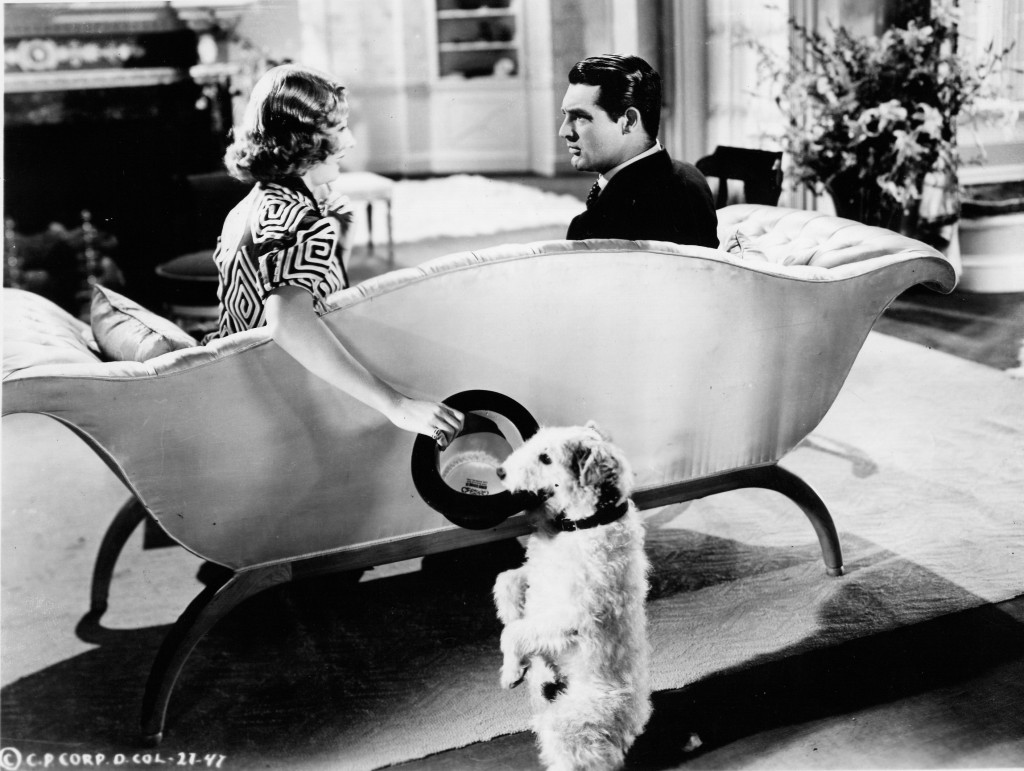Seriously Funny. The Films of Leo McCarey

Programme curated by Steve Massa
Starting with his movie apprenticeship at the Hal Roach Studios in the 1920s working with Laurel & Hardy and Charley Chase, Leo McCarey always focused on people and what he told Peter Bogdanovich was “the ineluctability of incidents”. Mole hills became mountains as the quirks, foibles, and piccadilloes of McCarey’s all too human characters bounced off each other and created an escalating chain of events. Using this “Particle Theory of Comedy” McCarey’s always seriously funny outlook gave birth to some of the 1930s most memorable classic comedies like Duck Soup (1933), Ruggles of Red Gap (1935), and The Awful Truth (1937), in addition to explorations of the bittersweet such as Love Affair (1939) and its remake An Affair to Remember (1957), and finally led to the darker examinations of the human condition in Make Way for Tomorrow (1937), Good Sam (1948), and My Son John (1952).
For many years he was the director of choice for the comedic elite of Hollywood – the Marx Brothers, W.C. Fields, Mae West, Harold Lloyd, Jack Oakie, Eddie Cantor, and Burns & Allen. Long before there were film schools McCarey, and fellow travelers like Frank Capra, John Ford, William Wyler, and Howard Hawks, soaked up life in extremely diverse backgrounds and early career experiences. This colored their choices of subjects and themes as they learned about film while making films. McCarey’s varied background in sports and law put him into contact with all types, and like Capra he reveled in putting the people he’d met up on the screen in all their glory, starting with the use of the motley crew of supporting players at the Hal Roach Studio like Jimmy Finlayson and Spec O’Donnell. Many of the Roach performers such as Edgar Kennedy, Harry Bernard, Lucien Littlefield, and Sam Lufkin he would take with him as good luck charms into features, where they were joined by the cream of Hollywood characters actors like Adolph Menjou, Barry Fitzgerald, ZaSu Pitts, Charles Ruggles, Roland Young, Victor Moore, Beulah Bondi, Mary Boland, and Asta.
Whether his comic anti-heroes and anti-heroines were Laurel & Hardy, Cary Grant and Irene Dunne, or father Bing Crosby and sister Ingrid Bergman, McCarey straddled silent slapstick, screwball comedy, light romance, sentimental melodrama, and even religious instruction, and managed to derail each genre in his own individual way. Writing and producing as well as directing (not to mention playing the piano between takes for inspiration), McCarey spent thirty years creating a film universe that was not only successful, but made him one of Hollywood’s most unassumingly personal filmmakers.
Steve Massa
Program
Saturday 27/06/2015
14:30
Jolly Cinema
PART TIME WIFE
PART TIME WIFE
Steve Massa and Dave Kehr
Saturday 27/06/2015
18:00
Jolly Cinema
Leo McCarey / The shorts 1
Leo McCarey / The shorts 1
Donald Sosin
Sunday 28/06/2015
14:30
Jolly Cinema
THE MILKY WAY
THE MILKY WAY
Suzanne Lloyd
Sunday 28/06/2015
16:30
Seriamente divertenti, i film di Leo McCarey
Seriamente divertenti, i film di Leo McCarey
Incontro con Steve Massa, Jonathan Rosenbaum, Bernard Eisenchitz
Coordina Dave Kehr
Sunday 28/06/2015
18:30
Jolly Cinema
Leo McCarey / 2
Leo McCarey / 2
Serge Bromberg
Sunday 28/06/2015
09:15
Jolly Cinema
THE AWFUL TRUTH
THE AWFUL TRUTH
Monday 29/06/2015
19:00
Jolly Cinema
Leo McCarey / 2
Leo McCarey / 2
Neil Brand
Monday 29/06/2015
09:15
Jolly Cinema
RUGGLES OF RED GAP
RUGGLES OF RED GAP
Tuesday 30/06/2015
18:45
Jolly Cinema
DUCK SOUP
DUCK SOUP
Tuesday 30/06/2015
09:15
Jolly Cinema
LOVE AFFAIR
LOVE AFFAIR
Wednesday 01/07/2015
18:00
Jolly Cinema
The Awful Truth / Mighty like a Moose
The Awful Truth / Mighty like a Moose
Antonio Coppola
Wednesday 01/07/2015
09:00
Jolly Cinema
MAKE WAY FOR TOMORROW
MAKE WAY FOR TOMORROW
Thursday 02/07/2015
19:00
Jolly Cinema
MAKE WAY FOR TOMORROW
MAKE WAY FOR TOMORROW
Thursday 02/07/2015
09:00
Jolly Cinema
PART TIME WIFE
PART TIME WIFE
Friday 03/07/2015
14:30
Jolly Cinema
RUGGLES OF RED GAP
RUGGLES OF RED GAP
Friday 03/07/2015
17:30
Cinema Lumiere - Sala Scorsese
YOU CAN CHANGE THE WORLD
YOU CAN CHANGE THE WORLD
Friday 03/07/2015
17:45
Jolly Cinema
THE BELLS OF ST. MARY’S
THE BELLS OF ST. MARY’S
Friday 03/07/2015
09:15
Jolly Cinema
THE MILKY WAY
THE MILKY WAY
Saturday 04/07/2015
11:15
Jolly Cinema
GOOD SAM
GOOD SAM
Saturday 04/07/2015
14:30
Jolly Cinema
LOVE AFFAIR
LOVE AFFAIR
Saturday 04/07/2015
18:00
Jolly Cinema
GOING MY WAY
GOING MY WAY
Saturday 04/07/2015
09:00
Jolly Cinema
THE BELLS OF ST. MARY’S


